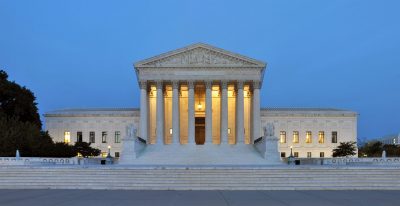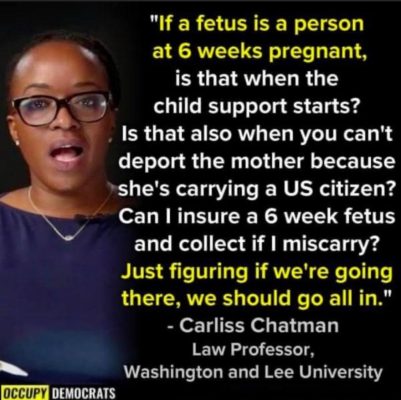
The United States famously has a tripartite system of government. We have three branches of the government: legislature, executive, and judicial. Naturally there are going to be areas of overlap and issues about not overstepping one’s domain and intruding into the realm of another branch. That being said, it is the legislative actions of the Supreme Court that frequently are the most disruptive. Such transgressions are magnified when they touch upon the lives of individual Americans.
There have been three major intrusions into the lives of individual Americans in the 20th century which I wish to address. Two are due to the Supreme Court and one by We the People ourselves. In these examples, we are not dealing with the war in Ukraine, tariffs, or even wages. Instead, the focus is on when daily life is disrupted as result of government action. In all three examples, the intrusion backfired and the law of unexpected consequences kicked in. In one case, we resolved the intrusion and moved on. In the other two cases, the disruptions are unresolved and continue to wreak havoc with the social fabric.
PROHIBITION
The amendment to the Constitution prohibiting the consumption (sale) of alcohol was a longtime coming. For decades people including female evangelical (Methodists) who could not even vote advocated on behalf of prohibition. The action was both at the state level and the national. Elections could be won or lost based on the candidate’s position on the prohibition of alcohol.
State by state, the prohibition forces prevailed until at last the magic number required for ratification was reached. Then at last and to the great joy and satisfaction of the proponents, prohibition became the law of the land.
Prohibition was a different type of amendment. It was not one asserting a right as so many in the Bill of Rights do. It was not some procedural issue regarding elections. In a sense one could say its precedent was the prohibition against slavery, but even that was a legal condition which could be countered by Jim Crow. Prohibition, as befitting its religious origin was more like the apodictic commandments from Sinai: THOU SHALT NOT DRINK ALCOHOL!
This secular commandment reached right into the homes of every American. It touched the lives of people as individuals. And, of course, it did not work. It did not banish alcoholic consumption from American life. Quite the contrary, it forced it underground. From the stills in the backwoods of the rural South to the speakeasies of the urban North, alcohol did not disappear. One result was the growth of organized crime, aka the Mafia, certainly an unintended consequence.
The failings of the prohibition were readily apparent. The result was a reaction against it with a new amendment that was ratified at warp speed. One lesson to be learned was to be very careful when you muck around with the daily lives of individual Americans. It was a lesson not learned.
SCHOOL BUSING
The Supreme Court failed to heed that lesson. The Supreme Court ruling prohibiting separate-but-equal as a guiding principle for schools continues to affect Americans to this very day. On the one hand, the Court made a judicial ruling about a particular doctrine as being unconstitutional. On the other hand, the Court then mandated a remedy to the situation which actually was a form of legislation. The legislative solution was arrived at without public participation. It did not follow the normal political discourse which would have occurred if the Court had turned to Congress with instructions to write a law reflecting the principles of the judicial decision. Instead it decreed a solution. Are we today where the Court wanted us to be when it legislated the solution nearly 70 years ago?
Obviously not. There are many powerful and moving stories to tell about the positive impact of desegregation. Remember the Titans. There also have been many unintended consequences of the decision to exploit the most vulnerable people in society, children, to achieve some social objection (The Law of Unintended Consequences: From Abortion to Voter Suppression). Suffice it to say that this attempt at social engineering failed just as Prohibition had only three decades earlier. The United States still pays a price for the dislocations and unraveling of the social fabric wrought but this high-minded and poorly thought out intrusion into the homes of Americans.
The decision also changed the position of the Supreme Court in American society. With prohibition, We the People had inflicted the change on ourselves. Therefore We the People were able to remedy the problem ourselves. With school busing, the decision had been made a group of nine people acting in secret and beyond the direct reach of We the People. Now these unelected people could tell us what we could and could not do right in our own immediate lives. Think of all the ways (white) people since developed to negate the ruling (The Law of Unintended Consequences: From Abortion to Voter Suppression). So much effort, energy, and money that was not used to create quality schools in every community.
The current political controversies on CRT and 1619 follow a longstanding fight on the control of local schools from the teaching or not teaching of evolution to how we teach the Civil War of Northern Aggression. The farther removed from our direct political control the decision makers are, the greater the danger of enraging the individuals effected … and the greater the likelihood of unintended consequences when decisions are not openly arrived at by elected representatives. The Supreme Court battles over national legislation in the 1930s now had become localized. With school busing, you did not need someone to explain to you how you would be effected, you could see with your own eyes.
Think of how different America would be today, if the Supreme Court had legislated that every community had the right to quality schools instead of forcing busing. The Court effectively red-lined school districts. There were areas of substandard housing, substandard schools, inadequate parks, inadequate public pools, inadequate libraries, and on it goes. Think of how teachers and principals in the red-lined districts had their careers short-circuited because they now could be overlooked in the new racist configuration. Think of the local role models for the young which were lost. But the Court knew best and it wreaked havoc with America instead.
ABORTION
With abortion, once again the Supreme Court decided to make it personal. Again, the Court made a decision on a legal principle, this time the previously unknown right to privacy. It then took it upon itself to legislate how that right was to be implemented. Again it did it all by itself without any public discussion. Again it mandated the implementation.
Even if you accept the idea that there is a constitutional right to abortion, it does not automatically follow that the trimester time frame is the one and only way to legislate the application of a solution. When the Supreme Court selected one particular method to implement its decision, it overstepped its bounds. While the Supreme Court may have monopoly power on deciding judicial principles, it has no legislative power to implement such decisions unless there is one and only one way to do so. If multiple options are possible, then the legislative authority defers to Congress. The issue here is not whether or not the Supreme Court is correct about the Constitutionality of the right to abortion, but whether or not it has the right to legislate a solution. The Court can rule on individual cases involving freedom of speech, freedom of the press, freedom of religion, and the right to assemble; it has no right to write the legislation defining those freedoms. That is for Congress to do.
Right now we are experiencing a case study in the shortcomings of secret decisions secretly arrived at. Look at the reaction to the leaked Alito draft. The responses to it demonstrate the kind of political discussion which can occur when matters are publicly deliberated. Will people be tried for murder? Will people be tried as accessories to murder? Will pregnant women at airports be tracked for their pregnancy when they return? What other presumed rights will be affected? No one knows.
Do you think the Supreme Court discussed/debated the concerns which have been raised in the public arena since the Alito draft was leaked? Doubtful? Now the Supreme Court Judges whether they wanted it or not have had the opportunity to hear the debate on its proposed abortion ruling that it otherwise would have missed. The remaining question is what, if any effect, will it have on them.






